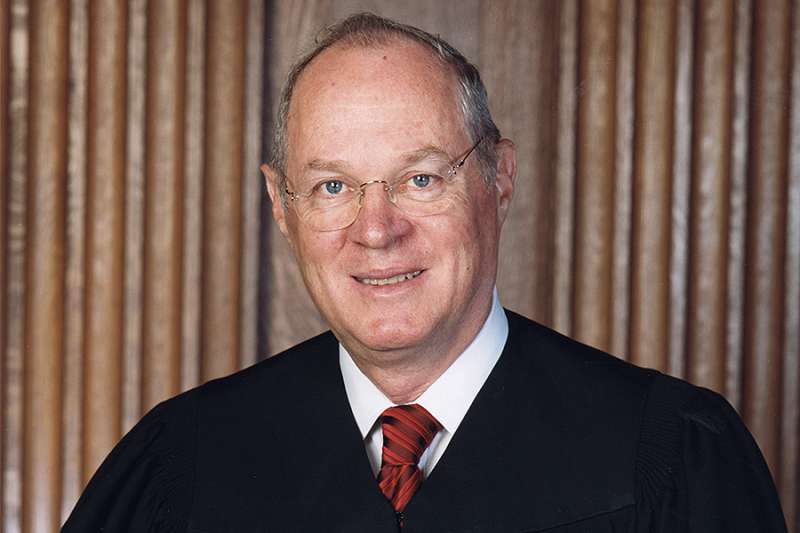The retirement announcement of Supreme Court Justice Anthony Kennedy has led pro-life advocates to voice hope that his successor could help overturn Roe v. Wade in coming years.
Kennedy submitted his formal resignation on Wednesday, in a letter to President Donald Trump.
“This letter is a respectful and formal notification of my decision, effective July 31 of this year, to end my regular active status as an Associate Justice of the Supreme Court,” the letter read.
“For a member of the legal profession it is the highest of honors to serve on this Court. Please permit me by this letter to express my profound gratitude for having had the privilege to seek in each case how best to know, interpret, and defend the Constitution and the laws that must always conform to its mandates and promises.”
Kennedy has served on the court for 30 years, since being appointed by President Ronald Reagan in 1987. He was known as a swing vote on a court that had been divided for years on key issues.
Kennedy had expressed varying views on abortion throughout the years. He sided with the majority on Planned Parenthood v. Casey in 1992, which preserved a right to abortion in the country. He was also the author of the majority opinion in the 2007 case Gonzales v. Carhart, which held that a ban on partial-birth abortion was constitutional.
Most recently, he voted with the majority on NIFLA v. Becerra, which rejected the claim that pro-life crisis pregnancy centers can be required to provide information about how to receive a free or low-cost abortion.
President Donald Trump will now appoint a replacement for Kennedy, who will need to be confirmed by the U.S. Senate. During the 2016 presidential election, Trump promised to appoint pro-life court nominees.
Pro-life advocates are hopeful that Kennedy’s retirement could set in motion the eventual overturning of Roe v. Wade - the 1973 Supreme Court decision that required legal abortion throughout the U.S.
Susan B. Anthony List president Marjorie Dannefelser called the announcement a “pivotal moment for the fight to ensure every unborn child is welcomed and protected under the law.”
“The most important commitment that President Trump has made to the pro-life movement has been his promise to nominate only pro-life judges to the Supreme Court, a commitment he honored by swiftly nominating Judge Neil Gorsuch,” said Dannefelser.
Catherine Glenn Foster, CEO and president of Americans United for Life, said in a statement that Kennedy’s retirement sets the stage for Trump to nominate a “committed constitutionalist to the Supreme Court who will hew to the intended meaning of the nation’s charter and refrain from employing it as a means of social engineering.”
“The Supreme Court, and the American people, need Justices who understand that the Constitution is the Nation’s highest form of precedent and that the Court should allow space for rearmament of poorly reasoned precedent, rather than prematurely declaring permanent victors in divisive constitutional spaces.”
Foster’s comments were echoed by Students for Life President Kristan Hawkins, who said that while she had been disappointed by some of Kennedy’s past decisions, she believes that Trump will appoint someone who is pro-life to the Court.
“We expect that President Trump will live up to his promises and appoint a justice in the tradition of Justice Antonin Scalia who respects the law as written and who understands that Life is the foundation for all other rights,” said Hawkins.
President Trump said that he intends to nominate someone to the Supreme Court from his list of 25 potential nominees released last year. The list includes Amy Coney Barrett, a former professor at Notre Dame Law School, who was controversially grilled over her Catholic faith during confirmation hearings last year.
If Roe were to be overturned, the legality of abortion would be decided at the state level. Some states have laws on the books that would effectively ban abortion if Roe were overturned.
Senate Majority Leader Mitch McConnell (R-KY) has said that the Senate intends to confirm whoever is nominated by the fall, meaning that the new justice will join the Supreme Court in time for the start of the term on October 1.

